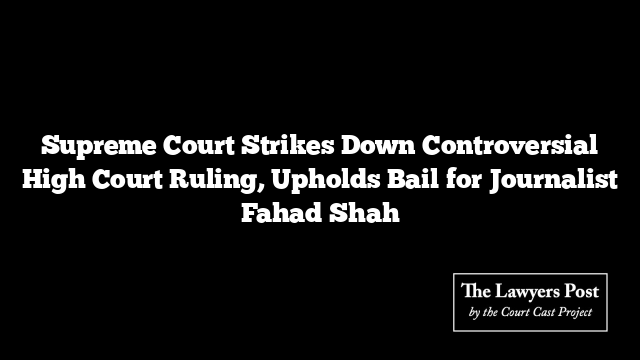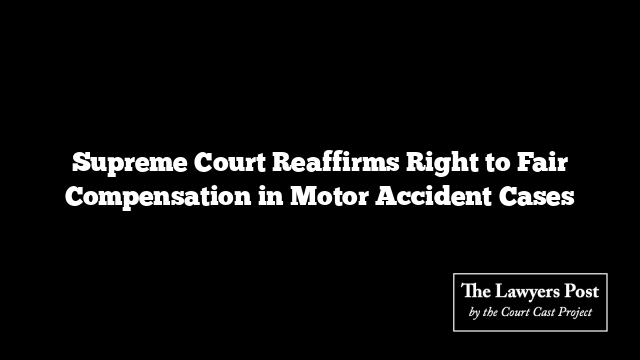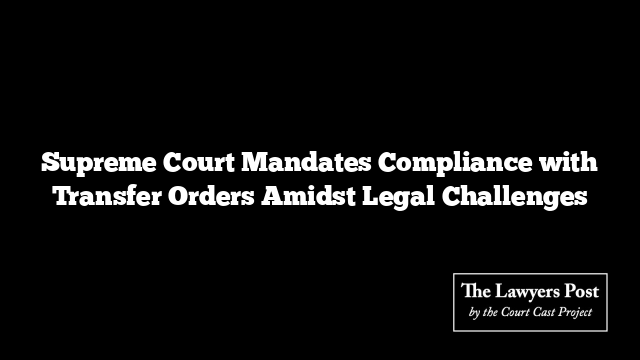In a significant ruling, the Supreme Court recently invalidated a controversial decision by the Jammu and Kashmir and Ladakh High Court concerning bail under the Unlawful Activities (Prevention) Act (UAPA). The High Court’s assertion that bail could be granted if the accused posed no “clear and present danger” to society has been deemed legally flawed.
This judgment emerged during the consideration of the bail case for Peerzada Shah Fahad, a journalist based in Kashmir. The High Court’s stance suggested that compromising India’s global reputation could not be equated with terrorist activities as defined by Section 15 of the UAPA.
While the Supreme Court’s bench, composed of Justices Bela Trivedi and Satish Chandra Sharma, upheld the bail granted to Fahad, it firmly rejected the High Court’s judgment, branding it as “per incuriam,” meaning it lacked legal validity and should not be cited in future cases.
The High Court had drawn upon a 1919 ruling from the US Supreme Court, Schenck v. United States, which highlighted that an arrest under the UAPA must hinge on the notion of creating a “clear and present danger” to society. This doctrine, while influential in American jurisprudence, has been rejected in Indian courts, as emphasized by the Supreme Court’s past rulings in cases such as Babulal Parate v. State of Maharashtra and State of Madras v. VG Row.
The Supreme Court clarified that the fundamental rights guaranteed under Article 19(1) of the Indian Constitution are not absolute and can be restricted under specific circumstances as outlined in clauses (2) to (6) of Article 19.
During the proceedings, Solicitor General Tushar Mehta argued that the High Court’s reliance on the US Supreme Court judgment was misplaced and asserted that there was ample evidence against Fahad to support the UAPA charges. However, the Supreme Court decided not to interfere with the High Court’s bail order, acknowledging that Fahad had already been on bail for nearly a year and that the trial was underway.
The Supreme Court issued a caution, indicating that any breach of bail conditions by Fahad or failure to cooperate in the trial could lead to his bail being revoked. Although certain charges against him had been quashed, the Trial Court retains the right to adjust charges based on the evidence presented.
Fahad’s case revolves around allegations that he published articles inciting violence and promoting separatist ideologies. He had been detained since May 2022 but was granted bail in November 2023.





